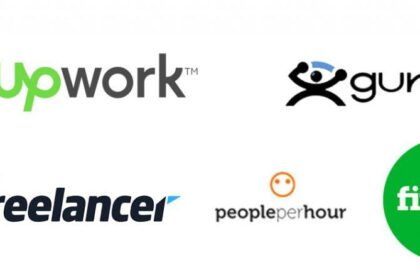In the ever-evolving landscape of freelancing, creativity and innovation are often at the forefront of one’s success. Yet, behind the scenes of this vibrant workforce lies a crucial, yet often overlooked, aspect of freelancing: the management of finances. As independent professionals navigate the thrill of flexible schedules and diverse projects, many find themselves grappling with the complexities of taxes and accounting. “Mastering Freelance Finances: A Guide to Taxes and Accounting” is designed to illuminate this often-daunting terrain, offering freelancers the insights and tools they need to turn financial chaos into clarity. Whether you’re an artist navigating your first tax season or a seasoned consultant seeking to refine your accounting practices, this guide aims to empower you with the knowledge to take control of your financial destiny, ensuring that your creative endeavors are met with the economic understanding required for long-term stability and growth. Join us as we explore strategies, tips, and essential insights that will pave the way for mastering your freelance finances with confidence.
Freelance Writing
offers exhilarating freedom, but with it comes the vital task of managing finances efficiently. As a freelancer, you’re essentially running your own business, which means understanding how to navigate the complexities of taxes and accounting. To start, consider setting up a dedicated bank account for your freelance income to keep personal and business finances separate. This clarity is invaluable, especially during tax season. Additionally, maintaining a detailed record of your earnings and expenses is crucial; utilizing accounting software can simplify this process and ensure you don’t miss any deductions. Here are a few essential expenses to track:
- Office Supplies: Pens, notebooks, etc.
- Software Subscriptions: Tools like Grammarly or Canva.
- Internet and Phone Bills: Necessary utilities for your work.
- Professional Development: Courses or books to enhance your skills.
- Home Office Deduction: A percentage of your rent or mortgage.
Next, familiarize yourself with the various tax obligations that come along with freelance work. Unlike traditional employees, freelancers must handle quarterly estimated tax payments, which can sometimes catch newcomers off guard. By estimating your potential tax liability based on previous earnings, you can set aside money each quarter to prevent a hefty bill in April. Consider consulting with a tax professional who specializes in freelance taxes to ensure you’re maximizing your deductions and complying with all regulations. Below is a simple breakdown of potential tax-related deadlines for freelancers:
| Deadline | Description |
|---|---|
| January 15 | Fourth quarter estimated tax payment due. |
| April 15 | Tax return filing and first quarter estimated payment due. |
| June 15 | Second quarter estimated tax payment due. |
| September 15 | Third quarter estimated tax payment due. |

Freelancing Platforms
have revolutionized the way independent professionals connect with clients and manage their work. These platforms serve as a virtual marketplace, offering a wide range of services across various industries. With features such as project management tools, secure payment systems, and client reviews, they simplify the freelancing experience. Some popular options include:
- Upwork – Offers a vast pool of job opportunities for skilled freelancers.
- Fiverr – Ideal for creatives to showcase and monetize their unique skills with predefined service tiers.
- Freelancer – A versatile platform that accommodates projects of all sizes, from quick gigs to long-term contracts.
- Guru – Allows freelancers to create a comprehensive profile and attract potential clients with their portfolios.
Using can also impact your financial management. Understanding how to track income from these sources is crucial for accurate tax reporting. Clients typically send you 1099 forms to report payments, providing essential information for your tax returns. Be sure to maintain detailed records of your earnings and expenses from each platform. To help visualize your financial flows, consider the following simplified income categorization:
| Freelance Income Type | Frequency |
|---|---|
| Client Projects | Variable |
| Platform Fees | Monthly |
| Bonuses/Commission | As Earned |

Freelance Graphic Design
As a er, managing your finances goes beyond simply invoicing clients. Understanding how to organize your earnings, track expenses, and set aside funds for taxes is essential for long-term success. Here are some key practices to consider for effective financial management:
- Keep Accurate Records: Use accounting software or spreadsheets to track all income and expenses. This makes it easier to prepare for tax season.
- Separate Business and Personal Finances: Open a dedicated business bank account to simplify financial tracking and provide a clear overview of your operations.
- Establish a Budget: Create a monthly budget that accounts for fluctuating income and planned expenses, helping you manage cash flow effectively.
Understanding your tax obligations is equally vital as a freelancer. Different countries have varied rules and regulations regarding self-employment taxes. Familiarize yourself with local laws and consider the following:
| Category | Description |
|---|---|
| Estimated Taxes | Set aside a percentage of your earnings to cover quarterly tax payments. |
| Deductions | Keep receipts for business-related expenses like software, equipment, and supplies, as these can be deducted from taxable income. |
| Professional Help | Consider hiring an accountant or tax professional to navigate complex tax codes and maximize your deductions. |

Freelance Web Development
As a freelance web developer, navigating the world of finances can be both exhilarating and daunting. Your income streams may vary greatly from month to month, making it essential to maintain a clear understanding of your earnings and expenses. Effective financial management ensures that you can invest back into your business while minimizing your tax liabilities. Here are some crucial financial aspects to keep in mind:
- Track Your Income: Use accounting software or spreadsheets to log every client payment, ensuring all revenue is accounted for.
- Set Aside for Taxes: Allocate a percentage of your income to avoid last-minute tax shocks—aim for at least 25-30%.
- Document Expenses: Keep detailed records of all business-related expenses, such as software subscriptions, office supplies, and training courses.
- Stay Organized: Regularly review and categorize your financial records to simplify tax filing.
Understanding the tax regulations specific to freelance web developers is vital. Many freelancers overlook potential deductions that can help reduce taxable income significantly. Here’s a simple breakdown of common deductible expenses you should keep in mind:
| Expense Type | Description | Tax Deduction Potential |
|---|---|---|
| Software Licenses | Premium tools for web development like frameworks, plugins, and IDEs. | 100% deductible |
| Home Office | Portion of your home used exclusively for business. | Potentially deductible |
| Internet and Phone Bills | Monthly bills for services used for business communications. | Partially deductible |
| Education and Training | Courses, webinars, and certifications that enhance skills. | 100% deductible |

Freelance Marketing Consultant
As a , navigating the complex world of finances is crucial for sustaining your business. Understanding your income sources is the first step. Freelancers often juggle multiple clients, which can lead to diverse income streams. To manage this effectively, consider maintaining a detailed spreadsheet or using accounting software that can help you track not only your income but also your expenses associated with marketing efforts. This way, you can easily identify which projects yield the highest returns and allocate resources efficiently. Below are key items to consider:
- Client Payments: Record each payment promptly.
- Project Expenses: Keep all receipts for tools and software.
- Monthly Revenue Reports: Generate reports to visualize cash flow.
Furthermore, preparing for tax season is an essential aspect of your freelance journey. Different regions have varying tax obligations, so keeping abreast of the specific requirements in your area is imperative. One effective approach is setting aside a portion of each payment you receive for taxes, typically around 25-30%. This ensures you’re not caught off guard when tax filing arrives. Consider the following tips to streamline your tax preparation:
- Hire an Accountant: If you’re unsure about your tax situation, a professional can offer invaluable guidance.
- Use Tax Software: Simplifies the process of tracking and filing taxes.
- Keep Personal and Business Finances Separate: This can minimize confusion during tax time.
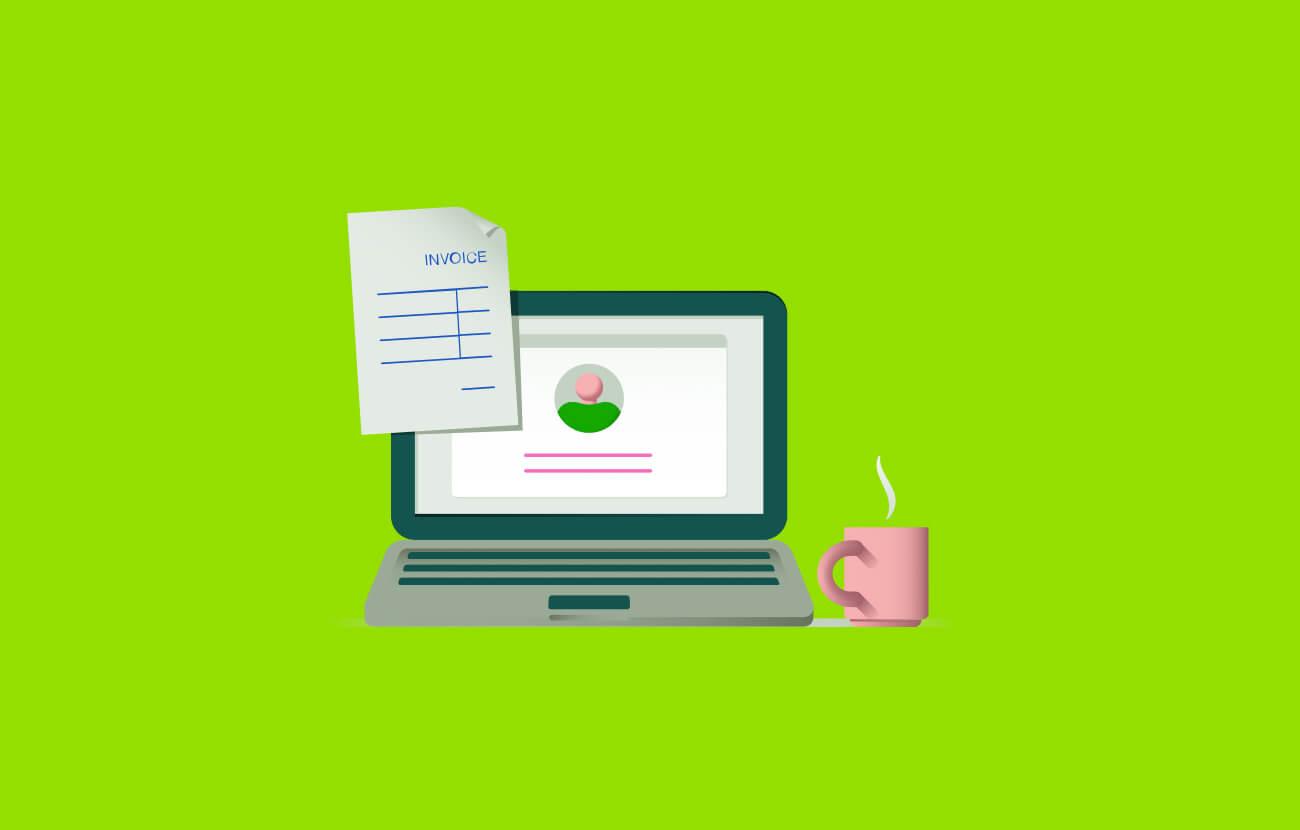
Freelancing for Beginners
Starting a freelance career can be thrilling yet daunting, especially when it comes to managing finances. To ensure you’re on the right path, it’s essential to familiarize yourself with basic accounting principles. Begin by setting aside a portion of your income for taxes; a common rule of thumb is to save 20-30% of your earnings. This cushion will help avoid any unpleasant surprises during tax season. Additionally, maintain organized records of your income and expenses. Consider using accounting software or a simple spreadsheet to track payments received and costs incurred related to your freelance work.
As a freelancer, understanding deductible expenses can significantly impact your bottom line. Common deductions include:
- Office supplies and equipment
- Home office expenses
- Software subscriptions
- Travel costs for client meetings
- Professional services (e.g., legal or consulting fees)
To illustrate the potential savings from deductibles, here’s a straightforward table highlighting various expenses and their possible deductions:
| Expense Type | Potential Deduction |
|---|---|
| Office Supplies | $200 |
| Software Subscriptions | $300 |
| Travel Expenses | $150 |
| Home Office | $400 |
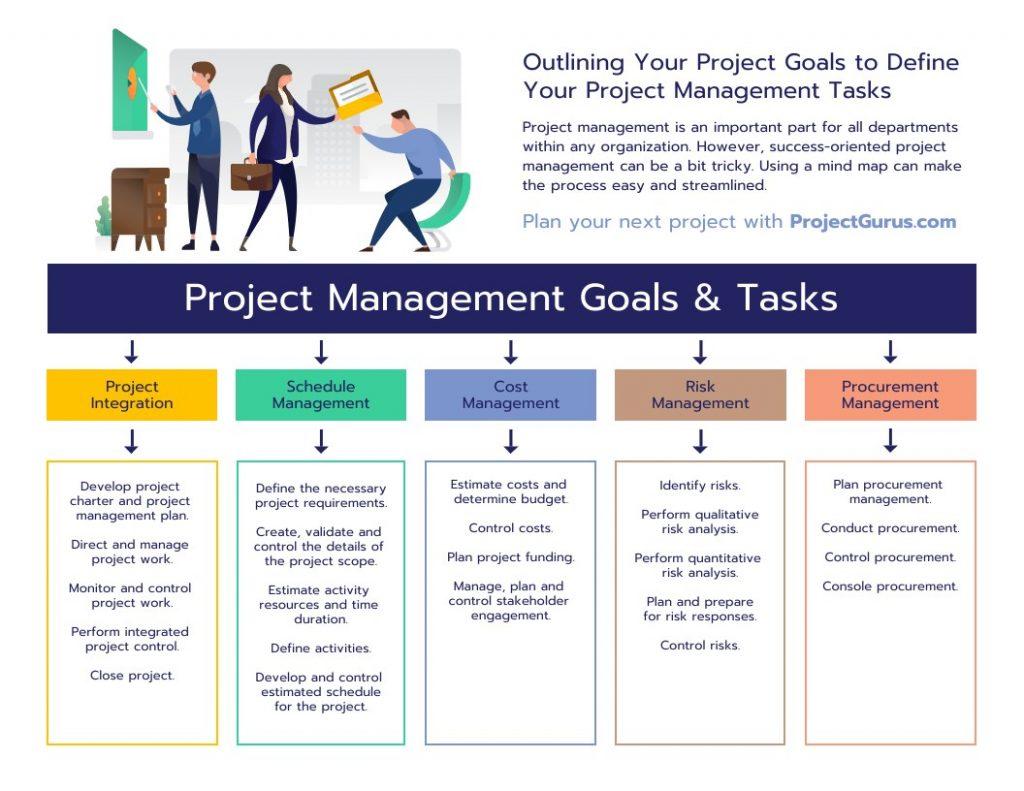
Freelance Project Management
In the world of freelancing, effective project management is not just about completing tasks on time; it’s also about ensuring that your financial records are as organized as your project timelines. A well-structured approach to managing your freelance projects can save you time and minimize stress when tax season rolls around. Incorporating tools like Trello or Asana can streamline your workflow, allowing you to keep track of deadlines, client communications, and deliverables in one place. To further optimize your finances, consider regularly updating a simple yet effective bookkeeping system that includes:
- Expense tracking: Document all business-related purchases.
- Invoice management: Ensure every client is billed accurately and on time.
- Income recording: Keep a detailed log of all incoming payments.
- Tax prep: Set aside a portion of your income specifically for annual taxes.
Moreover, understanding the nuances of project management can lead to better financial planning and forecasting. Utilizing Gantt charts or Kanban boards helps visualize project timelines, making it easier to assess potential income streams and related costs. Here’s a simple table to illustrate common project timeframes and their financial implications:
| Project Type | Typical Duration | Estimated Revenue |
|---|---|---|
| Website Development | 4-6 Weeks | $2,000 – $5,000 |
| Content Creation | 2-3 Weeks | $500 – $2,000 |
| Graphic Design | 1-2 Weeks | $300 – $1,500 |

Remote Freelance Jobs
As the gig economy continues to expand, opportunities for are more abundant than ever. With job roles spread across various industries, freelancers can find flexibility and diversity in their work, which can lead to both creative satisfaction and financial independence. Popular roles include:
- Content Creator: Writers, bloggers, and videographers who craft engaging material.
- Graphic Designer: Artists who develop visuals for clients, from logos to marketing materials.
- Web Developer: Tech-savvy professionals creating and maintaining websites.
- Digital Marketing Specialist: Experts optimizing strategies to enhance brand visibility online.
As freelancers manage their own finances, understanding the nuances of taxes and accounting is crucial for sustainable success. Keeping track of income and expenses is essential, and utilizing user-friendly accounting software can make this process seamless. Here’s a quick overview of some key accounting methods:
| Accounting Method | Description |
|---|---|
| Cash Basis | Records income and expenses when they are actually received or paid. |
| Accrual Basis | Records income and expenses when they are earned or incurred, regardless of cash flow. |

Freelance Photography
Navigating the financial landscape as a freelance photographer involves a unique set of challenges and rewards. To ensure your business thrives, it’s essential to keep meticulous records of your income and expenses. This includes tracking payments from clients, gear purchases, and other operational costs. Consider using reliable accounting software or apps specifically designed for freelancers, as they can simplify invoicing and track your cash flow efficiently. Establish a consistent system for organizing receipts, whether it’s through digital storage or traditional methods, to streamline your tax preparation process.
Additionally, being aware of your tax obligations is critical in maintaining financial health. Freelancers typically operate as sole proprietors or may need to set up a limited liability company (LLC) depending on their income and business structure. Understanding your tax bracket and the necessary deductions available for photographers is vital. Some common deductibles include:
- Camera equipment and lenses
- Editing software subscriptions
- Business travel expenses
- Home office costs
Taking the time to consult with a tax professional who specializes in freelance work can help you maximize your deductions and minimize liabilities. Here’s a simple breakdown of potential savings from tax deductions:
| Deduction Type | Potential Annual Deduction |
|---|---|
| Camera Equipment | $1,500 |
| Software Subscriptions | $600 |
| Travel Expenses | $2,000 |
| Home Office | $1,200 |
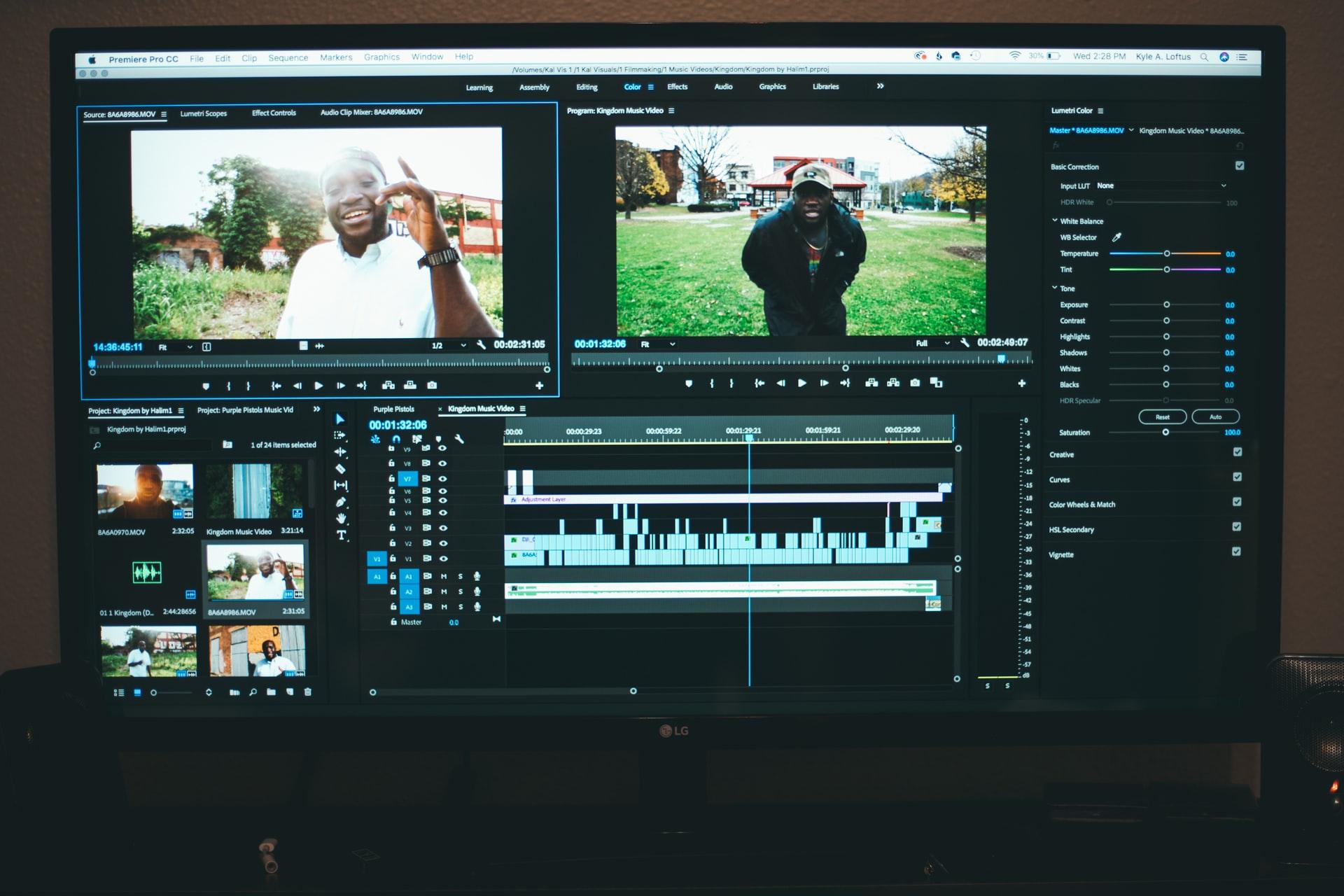
Freelance Video Editing
Freelancers in the video editing realm often face unique financial challenges that require a tailored approach to managing income and expenses. To navigate these complexities, it’s crucial to establish a clear understanding of your income streams. This can encompass various sources such as project fees, deposit payments, and royalties. Keeping meticulous records of each project will not only simplify tax preparation but also help you gauge who your most profitable clients are. Utilize tools like spreadsheets or financial software to categorize your earnings and track payments efficiently.
Alongside income tracking, maintaining an organized system for your business expenses is essential. These may include costs associated with software licenses, hardware upgrades, and professional development courses. Consider creating a comprehensive list of deductible expenses that will help reduce your taxable income. You can convert this into a table format for easy reference:
| Expense Category | Examples |
|---|---|
| Software | Adobe Premiere, Final Cut Pro |
| Hardware | External drives, high-resolution monitors |
| Professional Services | Accountant fees, legal consultations |
| Marketing | Website hosting, promotional materials |

Freelance Social Media Manager
As a , navigating the financial landscape can feel overwhelming. However, setting up a reliable system for tracking income and expenses can simplify this process considerably. Start by creating a separate bank account for all business-related transactions. This not only keeps your finances organized but also makes it easier to spot deductible expenses. Here are some key elements to monitor:
- Income: Maintain records of all payments received from clients.
- Expenses: Log costs related to software subscriptions, advertising, and equipment.
- Taxes: Set aside a portion of your earnings to cover estimated tax payments.
Implementing accounting software designed for freelancers can further streamline your financial management. Many options offer features tailored to your specific needs, from invoicing to expense categorization. Additionally, familiarizing yourself with deductions specific to social media management can maximize your tax benefits. This could include:
- Home Office Deduction: If you work from home, you may be eligible for a portion of your housing expenses.
- Internet and Phone Bills: Keep track of bills as these are essential for your communication with clients.
- Marketing Costs: Expenses related to promoting your services can often be deducted.

Freelance SEO Expert
As a , managing your finances effectively is crucial to maintaining a healthy and sustainable business. Unlike employees, freelancers must take on the responsibility of tracking their income and expenses meticulously. This entails a rigorous organization of your financial documents, ensuring every invoice, receipt, and statement is documented. Consider utilizing digital tools for accounting, which can simplify this process, allowing you more time to focus on optimizing websites rather than stressing over numbers. Here are some vital categories to keep in mind for your accounting:
- Income Sources: Client payments, affiliate earnings, and ad revenue
- Business Expenses: Software subscriptions, internet costs, and office supplies
- Taxes: Estimated taxes, income tax prep fees, and deductions
When it comes time to pay taxes, understanding your filing obligations is paramount. Typically, freelancers may need to file quarterly estimated taxes to avoid penalties, and it’s essential to know which deductions you can claim to reduce your taxable income. Below is a simple table representing common deductions freelancers may overlook:
| Deductions | Description |
|---|---|
| Home Office Deduction | Expenses related to the space you use for work. |
| Travel Expenses | Costs incurred while visiting clients or attending conferences. |
| Professional Development | Costs for courses and certifications that enhance your skills. |
| Marketing Costs | Anything spent on promoting your freelance services. |

Freelance Copywriting
offers an exciting opportunity for creative entrepreneurs to showcase their talents while navigating the intricate world of client relationships and project management. However, this flexibility also introduces a unique set of financial responsibilities that require attention. To successfully manage your finances, consider maintaining meticulous records of your income and expenses. A simple spreadsheet or dedicated accounting software can help you categorize your earnings from various clients, track your project costs, and monitor your cash flow. Here are a few key considerations:
- Income Tracking: Record payments as they come in and label sources clearly.
- Expense Documentation: Save receipts for any expenses related to your work, such as software subscriptions or promotional services.
- Regular Reviews: Schedule monthly check-ins on your finances to adjust your budgeting.
When it comes to tax season, freelancers need to be proactive. As self-employed individuals, you’ll typically be responsible for filing quarterly estimated taxes, which can feel daunting. Familiarizing yourself with the deductions available to you can significantly ease the financial burden. Here’s a quick reference table for some common deductions that freelancers might overlook:
| Deductions | Description |
|---|---|
| Home Office | Percentage of your home use dedicated to your freelancing. |
| Equipment Expenses | Cost of computers, cameras, or tools necessary for your work. |
| Travel Expenses | Costs incurred while traveling for client meetings or projects. |
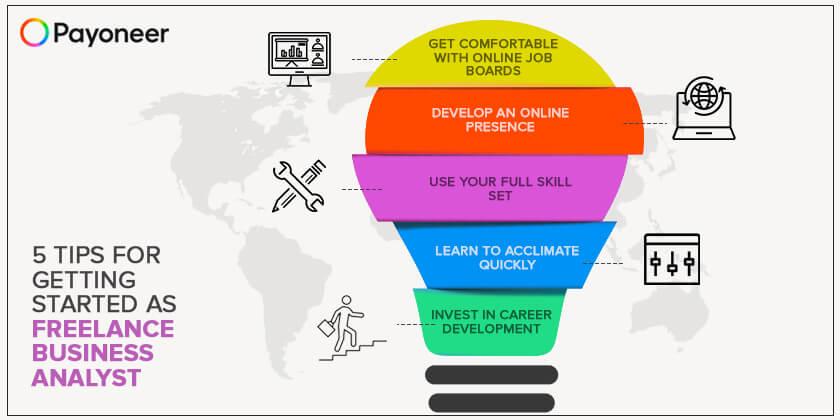
Freelance Business Tips
Freelancing offers flexibility, but with that freedom comes the responsibility of managing your finances properly. One essential aspect is developing a systematic approach to tracking your income and expenses. By keeping detailed records, you’ll not only simplify your tax filing process but also gain insights into your business’s financial health. Consider using accounting software tailored for freelancers, which can help you automate invoicing and expense tracking. Make it a habit to set aside a specific percentage of every payment you receive for taxes; this will alleviate the stress during tax season and ensure you’re never caught off guard.
Understanding deductions is another pivotal component of freelancing finances. While tax laws can be complex, knowing which expenses qualify as deductions can significantly decrease your taxable income. Common deductions include home office expenses, software subscriptions, and even equipment purchases. Here’s a brief overview of some common freelance write-offs:
| Deduction Type | Examples |
|---|---|
| Home Office | Utilities, Rent (portion), Internet |
| Equipment | Computers, Cameras, Office Furniture |
| Professional Services | Lawyer Fees, Accountant Fees |
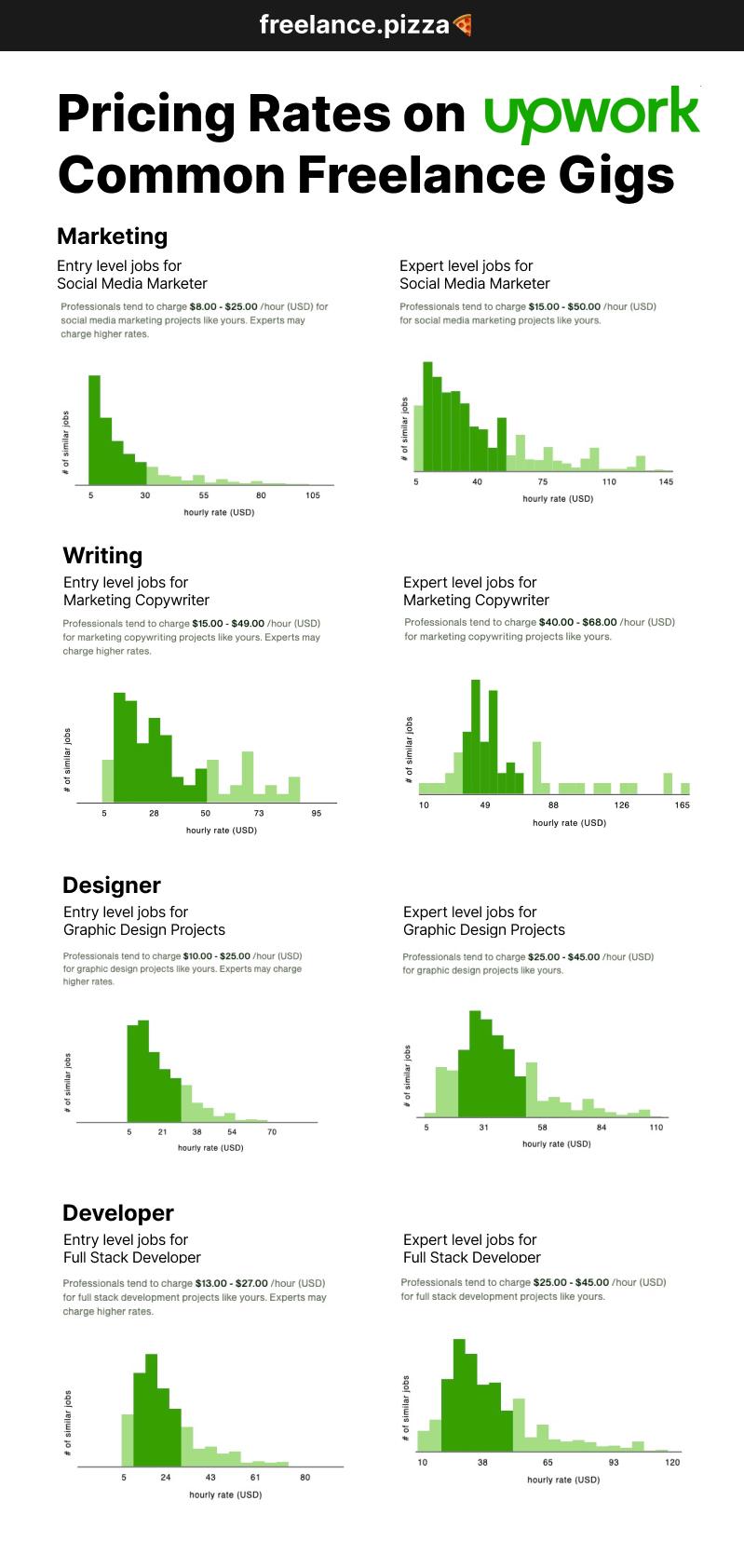
Freelance Rates and Pricing
Setting your freelance rates can feel daunting, but with careful consideration and a clear understanding of your value, you can establish a pricing structure that aligns with your skills and market demand. Start by evaluating your expertise, the complexity of the projects you undertake, and the time required to deliver quality work. Consider the following factors when determining your rates:
- Experience Level: More seasoned freelancers can command higher rates.
- Market Research: Investigate what fellow freelancers in your niche are charging.
- Client Budget: Be aware of the financial constraints of your potential clients.
- Project Scope: Larger or more intricate projects warrant a premium rate.
Additionally, you have the option to choose between hourly rates and project-based pricing. Each approach has its advantages and can lead to varied income based on your workflow preferences. To help visualize different rates, consider the table below:
| Service Type | Hourly Rate (USD) | Project Rate (USD) |
|---|---|---|
| Graphic Design | $50 | $300 |
| Web Development | $75 | $1,200 |
| Content Writing | $40 | $500 |
By reflecting on these categories and utilizing strategic pricing models, you can confidently navigate the world of freelance rates, ensuring your financial success while providing exceptional value to your clients.

Building a Freelance Portfolio
Creating a compelling freelance portfolio is essential in showcasing your skills and attracting potential clients. To start, focus on highlighting your best work. Choose pieces that not only reflect your capabilities but also demonstrate your versatility. Aim to include a mix of projects that cater to different industries or skill sets. Remember, quality over quantity is key; a few outstanding pieces will make a stronger impression than a larger collection of mediocre work. Consider categorizing your projects with brief descriptions for each to give viewers insight into your thought process and the problems you solved.
Additionally, don’t forget to incorporate client testimonials and feedback into your portfolio. This can significantly enhance your credibility. A well-crafted testimonials section should feature quotes that highlight your professionalism, creativity, and reliability. Here’s a simple layout you might consider:
| Client | Testimonial |
|---|---|
| John Doe | “An exceptional freelance experience! The project was delivered on time and exceeded my expectations.” |
| Jane Smith | “A true professional! Their attention to detail made a significant difference in the final outcome.” |
By paying attention to these details, your portfolio can become a powerful tool in attracting clients while also paving the way for fruitful freelance engagements.

Freelance Contract Templates
When embarking on a freelance journey, securing your rights and responsibilities through a well-structured contract is essential. serve as valuable tools that help streamline the onboarding process with clients while ensuring clarity and professionalism. These templates typically include key components such as:
- Project Scope: Defines the services you will provide.
- Payment Terms: Details about rates, invoicing frequency, and acceptable payment methods.
- Deadlines: Specifies timelines for project milestones and delivery.
- Confidentiality Agreements: Protects sensitive information shared during the project.
- Termination Clause: Outlines the conditions under which either party can end the contract.
Incorporating these elements into your template not only protects your interests but also builds trust with your clients. Utilizing platforms that provide customizable templates can greatly enhance your effectiveness. Here’s a simple comparison of popular :
| Template Source | Features | Cost |
|---|---|---|
| Freelancer.com | User-friendly interface, customizable | Free |
| Rocket Lawyer | Legal advice included, state-specific | Subscription-based |
| TemplateLab | Variety of templates, easy downloads | Free |

Freelance Time Management
Time management is crucial for freelancers who juggle multiple clients and projects simultaneously. Implementing effective strategies can help you maximize productivity and meet your financial goals. Consider adopting the following techniques to organize your workflow:
- Plan Your Week: Set aside time each week to outline your priorities and deadlines.
- Use Time-Tracking Tools: Employ apps like Toggl or Harvest to understand where your hours go.
- Prioritize Tasks: Identify high-impact tasks to tackle first, avoiding the trap of busywork.
Creating a schedule that reflects both your peak productivity hours and your client commitments is vital. A structured approach can lead to achieving a healthy work-life balance, which is essential for freelance success. Consider implementing a simple time-blocking method where you allocate specific hours for tasks. Here’s a sample schedule:
| Time Slot | Activity |
|---|---|
| 9:00 AM – 11:00 AM | Client A Project Work |
| 11:30 AM – 1:00 PM | Client B Calls and Emails |
| 2:00 PM – 4:00 PM | Client C Research and Writing |
| 4:30 PM – 5:30 PM | Admin Tasks and Invoicing |

Freelance Networking
Building relationships in the freelance world is vital for sustained success and growth. Connecting with other freelancers not only opens up opportunities for collaboration but also fosters a sense of community that can provide valuable support. To effectively network, consider engaging in various platforms such as online forums, social media groups, and local meetups. Here are a few strategies to enhance your networking:
- Attend industry conferences – Participate in workshops and panel discussions to meet like-minded professionals.
- Leverage social media – Platforms like LinkedIn and Twitter are ideal for connecting with peers and showcasing your work.
- Join professional associations – Becoming a member can expand your network and provide additional resources.
- Collaborate on projects – Teaming up with others can lead to new opportunities and diverse skill development.
Furthermore, don’t underestimate the power of maintaining and nurturing your connections. Regular outreach, whether through a simple message or sharing helpful resources, can keep you on the radar of your contacts. Consider creating a structured way to organize and follow up with your networking efforts. Below is a simple guide to help you manage your freelance contacts effectively:
| Contact Name | Connection Date | Follow-Up Date | Notes |
|---|---|---|---|
| Jane Smith | January 15, 2023 | April 15, 2023 | Potential collaboration on design project. |
| John Doe | February 10, 2023 | May 10, 2023 | Discuss tax advice for freelancers. |
| Emily Johnson | March 5, 2023 | June 5, 2023 | Interested in starting a podcast together. |

Freelancing in Tech
Breaking into the tech freelance market opens up numerous opportunities for individuals looking to leverage their skills in software development, web design, and digital marketing. However, alongside the freedom and flexibility of freelancing comes the responsibility of managing your own finances. It’s crucial to keep track of all income sources and expenses, ensuring that you can accurately report your earnings when tax season arrives. Utilizing accounting software tailored for freelancers can make this task easier, as these platforms often come equipped with tools to help you track invoices, categorize expenses, and generate tax reports.
Additionally, understanding the tax implications of freelancing is vital. Freelancers must often pay estimated taxes quarterly, which can catch many by surprise if they’re not prepared. Key considerations include:
- Deductions: Know what expenses are deductible, such as home office costs, software subscriptions, and professional development courses.
- Record Keeping: Maintain accurate and organized financial records to streamline the preparation of your tax return.
- Self-Employment Tax: Be aware that you are responsible for both the employer and employee portions of Social Security and Medicare taxes.
| Income Sources | Typical Expenses |
|---|---|
| Client Projects | Software Licenses |
| Affiliate Marketing | Marketing Costs |
| Online Courses | Internet and Utilities |
By mastering the intricacies of freelance finances, tech professionals can not only safeguard their earnings but also cultivate a sustainable and thriving career. Taking the time to educate oneself about tax laws and accounting practices can lead to better financial health and increased job satisfaction in the long run.
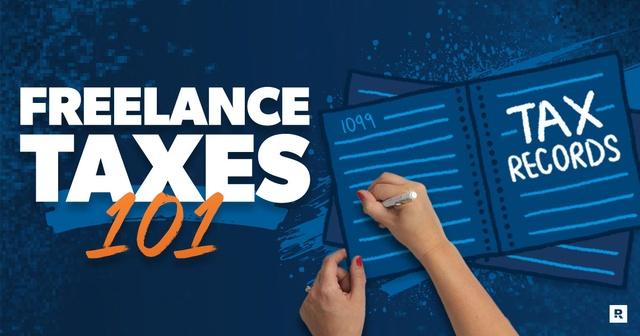
Freelance Taxes and Accounting
As a freelancer, navigating the labyrinth of taxes and accounting can feel daunting, but with the right strategies, you can streamline your processes and ensure compliance with tax regulations. Start by setting aside a percentage of each payment you receive for taxes—typically 25% to 30% is a safe estimate. Keeping meticulous records is essential; consider using digital tools to track your income and expenses. Regularly update your accounting software or spreadsheet to categorize your expenses, including:
- Office supplies
- Software subscriptions
- Travel expenses
- Home office deductions
At the end of the fiscal year, it’s vital to prepare for tax season by gathering all relevant documents. Organizing your paperwork can save you time and stress, ensuring you don’t miss any crucial deductions or credits. A helpful approach is to create a simple table to outline your income and expenses:
| Category | Total Amount |
|---|---|
| Income | $10,000 |
| Expenses | $3,000 |
| Net Income | $7,000 |
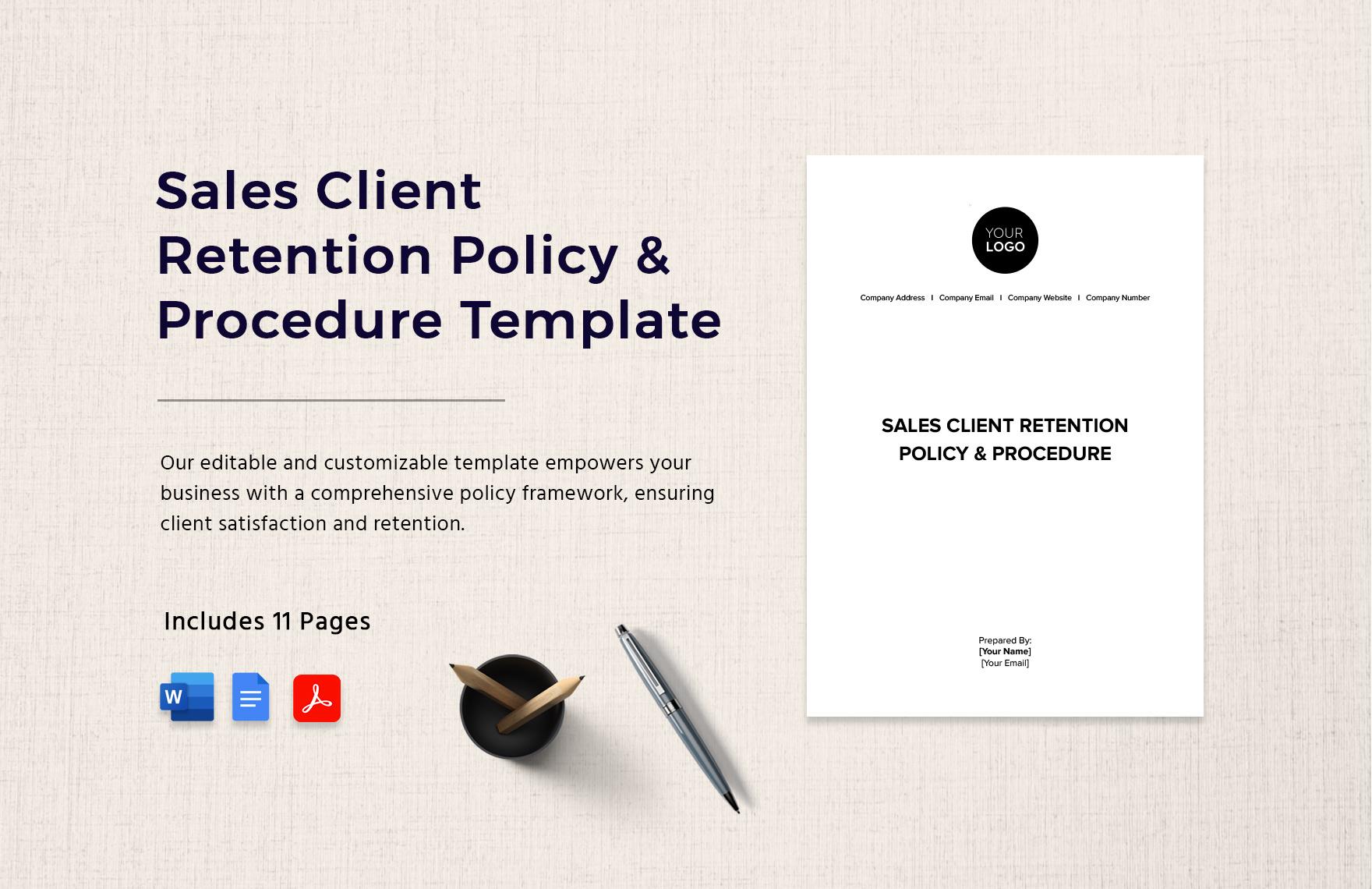
Freelance Client Retention
Client retention is a vital aspect of sustaining a successful freelance career. Building strong relationships with your clients requires consistent communication and delivering high-quality work that exceeds their expectations. Consider implementing some of the following strategies to ensure your clients remain satisfied and engaged:
- Regular Updates: Keep clients informed about project progress and milestones to create a sense of inclusion.
- Feedback Mechanisms: Encourage clients to share their feedback, ensuring they feel heard and valued.
- Personal Touch: Sending personalized thank-you notes or occasional check-ins can strengthen your bond.
- Continued Value: Offer additional services or insights related to their industry that can further assist them.
Another effective way to enhance client loyalty is through clear and transparent project management. Establish a solid framework by setting expectations upfront with well-defined scopes and timelines. Utilizing a project management tool can also keep you organized and your clients updated in real-time. Consider the following table showcasing best practices for project management:
| Practice | Description |
|---|---|
| Clear Communication | Ensure all parties are aligned through scheduled meetings and updates. |
| Structured Workflow | Establish clear milestones and deadlines to streamline the process. |
| Documentation | Keep thorough records of all communications, agreements, and revisions for clarity. |
| Flexible Adaptation | Be open to changes and willing to adjust the project based on client needs. |

Freelancing Full-Time vs Part-Time
Choosing between freelancing full-time or part-time can significantly impact your financial management, tax obligations, and overall lifestyle. Full-time freelancers typically enjoy higher income potential and a more consistent workflow, which can lead to greater opportunities for growth and financial stability. However, they also face responsibilities such as maintaining health insurance, managing retirement contributions, and grappling with the unpredictability of client payments. In contrast, part-time freelancing allows for greater flexibility and a lower risk threshold. You can maintain a steady income from a traditional job while exploring freelance opportunities, but this may limit your overall earnings and client engagement.
When it comes to financial management, there are key considerations for both paths. Full-time freelancers may want to establish a more detailed budget, as their income often fluctuates based on client contracts. They should also be prepared for estimated tax payments throughout the year. On the other hand, part-time freelancers should focus on clear tracking of all income and expenses associated with their freelance work, ensuring they differentiate these from their regular employment income for tax purposes. A simple way to organize your finances is through a table that outlines your expected income and costs:
| Category | Full-Time Freelancing | Part-Time Freelancing |
|---|---|---|
| Income Potential | High | Moderate |
| Flexibility | Low | High |
| Tax Reporting | Quarterly | Annual |
| Benefits Management | Self-Managed | Employer-Provided |

Freelance Job Boards
Freelancing opens a world of opportunities, but finding consistent work can be challenging. This is where come into play, serving as vital platforms that connect freelancers with clients seeking specific skills. These boards not only allow you to showcase your expertise but also help you manage your workflow more efficiently. Some of the most popular options include:
- Upwork: A versatile platform catering to a variety of industries.
- Freelancer: Known for its competitive price bidding system, perfect for budget-conscious clients.
- Fiverr: A marketplace where freelancers can offer specific services at set prices.
- PeoplePerHour: A UK-centered platform focusing on short-term projects.
- Guru: Offers a unique workroom feature for collaboration with clients.
Engaging with these platforms not only helps in securing gigs but also plays a role in your financial management. As you take on projects from various clients, it’s essential to track your earnings efficiently. Many job boards provide integrated tools for invoicing and payment tracking, streamlining the accounting process. To maximize the benefits, keep a close eye on:
| Board | Key Features |
|---|---|
| Upwork | Time tracking, invoices, payment protection |
| Freelancer | Milestone payments, offer negotiations |
| Fiverr | Service packages, secure payments |
| PeoplePerHour | Hourly or project-based rates |
| Guru | Collaboration workspace, flexible pricing |

Freelance Branding Strategies
In the competitive world of freelancing, effective branding is essential to distinguish yourself from others and attract clients. Establishing a strong identity involves not just showcasing your skills, but also crafting a narrative that resonates with your target audience. Consider focusing on the following elements to create a memorable brand:
- Unique Value Proposition: Clearly define what sets you apart from other freelancers.
- Consistent Visual Identity: Use uniform colors, fonts, and logos across all platforms.
- Engaging Online Presence: Actively maintain a professional website and social media channels.
- Testimonials and Case Studies: Leverage client feedback to build credibility and trust.
Moreover, it’s crucial to integrate your branding efforts with your financial practices to enhance professionalism and streamline operations. Consider implementing the following strategies for a cohesive approach:
| Strategy | Description |
|---|---|
| Client invoices branded | Create invoices that reflect your branding, reinforcing your professional identity. |
| Branded marketing materials | Utilize branded brochures, business cards, and email signatures to maintain consistency. |
| Social media branding | Regularly post content that reflects your expertise and aligns with your personal brand. |

Freelancing in Graphic Design
Freelancing as a graphic designer comes with a unique set of financial challenges that require careful navigation. Among the most pressing tasks is understanding how to manage your income, expenses, and taxes effectively. As a freelancer, you’ll need to track various revenue streams, including client contracts, project fees, and potentially, passive income from design assets sold online. To simplify this process, consider utilizing accounting software tailored for freelancers, such as QuickBooks or FreshBooks, which can automatically categorize expenses and generate invoices. Don’t forget to also keep eyes on your business costs, which may include:
- Software subscriptions – tools like Adobe Creative Cloud or Sketch
- Hardware investments – laptops, tablets, and peripherals
- Marketing expenses – website hosting, domain fees, and advertising
Furthermore, understanding tax obligations is essential to ensure compliance and avoid penalties. As a freelancer, you’ll typically file taxes quarterly, paying estimated taxes based on your earnings. Familiarize yourself with deductible business expenses that can reduce your taxable income, such as home office costs or internet bills. Use the following table to identify some common freelance tax deductions:
| Deduction Category | Description |
|---|---|
| Home Office | Proportional costs related to your workspace at home. |
| Professional Services | Fees for legal, accounting, or business service providers. |
| Education | Courses and workshops to enhance your design skills. |

Freelance Personal Development
As a freelancer, understanding how to manage your finances is essential for your personal and professional growth. It is not just about crunching numbers but also about when to invest in yourself and your business. While navigating the complex landscape of taxes and accounting, consider the following essential strategies to enhance your financial literacy:
- Track Your Income and Expenses: Maintaining accurate records of your earnings and expenditures is crucial. Utilize accounting software or spreadsheets to categorize your income sources and keep track of deductible expenses. This could include software subscriptions, office supplies, and travel costs.
- Educate Yourself on Tax Obligations: Familiarize yourself with local tax laws and deadlines. Understanding how self-employment taxes work can prevent you from facing unexpected financial burdens during tax season.
- Set Aside Money for Taxes: Regularly allocate a portion of your earnings specifically for tax payments. This will help ensure that you have enough set aside when tax season arrives.
Establishing solid financial habits can also set the stage for long-term success. Consider creating a budget to manage your earnings effectively while investing in opportunities that promote personal development:
| Investment Area | Potential Return |
|---|---|
| Skills Training | Increased Expertise |
| Networking Events | New Opportunities |
| Health and Wellness | Enhanced Productivity |
By adopting a proactive approach to managing your finances, you not only position yourself for success but also foster a mindset of continual growth in your freelance career.

Freelance Income Diversification
Freelancers often experience fluctuations in income, making it imperative to explore various revenue avenues. By diversifying your freelance income, you can create a more stable financial foundation. Consider the following options to expand your portfolio:
- Explore multiple skills: Expand your service offerings to cater to different client needs.
- Passive income streams: Look for ways to generate passive income, such as selling digital products or offering online courses.
- Networking opportunities: Collaborate with other freelancers to broaden your reach and take on bigger projects.
- Seasonal services: Identify seasonal trends in your field and offer specialized services during peak times.
As you consider diversifying your income, it’s also essential to keep track of various revenue sources for better accounting and tax management. Utilize tools and software that can seamlessly integrate income tracking across multiple platforms. Here’s a simple guide to consider:
| Income Source | Tax Consideration |
|---|---|
| Freelance Projects | Report all earnings as self-employment income. |
| Online Courses | Sales may be subject to VAT depending on your location. |
| Affiliate Marketing | Income earned is taxable; keep invoices for clarity. |
| Selling Products | Sales tax may apply; consider cost of goods sold. |
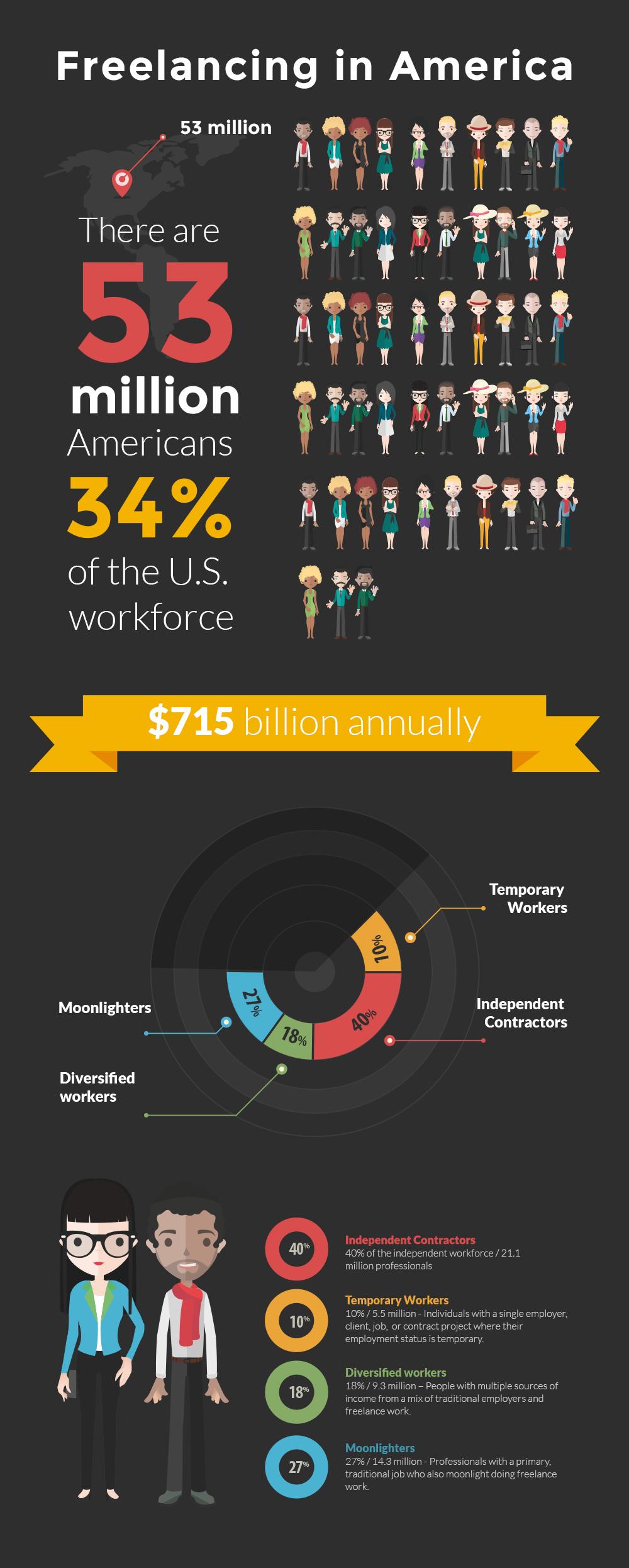
Freelance Career Growth
As you embark on your freelance journey, mastering your finances is crucial for achieving sustainable growth. This involves not only keeping track of your income and expenses but also understanding the intricacies of taxes and accounting. Organizing your financial records effectively allows you to make informed decisions and ensures you’re prepared for tax season. Here are some key practices to implement:
- Set up a dedicated business bank account to keep personal and business finances separate.
- Utilize accounting software to automate tracking income and expenses.
- Regularly review your finances, ideally on a monthly basis, to monitor cash flow and profitability.
- Consult a tax professional to navigate the complexities of tax deductions and obligations.
In addition to routine financial management, understanding the tax implications of your freelance income can propel your career forward. Consider creating a table to track your potential deductible expenses, which can significantly lower your taxable income. Here’s a simple framework to guide you:
| Deductible Expense | Description | Est. Amount |
|---|---|---|
| Office Supplies | Notebooks, pens, printer ink | $200 |
| Software Subscriptions | Design or productivity tools | $300 |
| Home Office Deduction | Portion of rent/utilities | $1,000 |
| Professional Development | Courses or workshops | $150 |
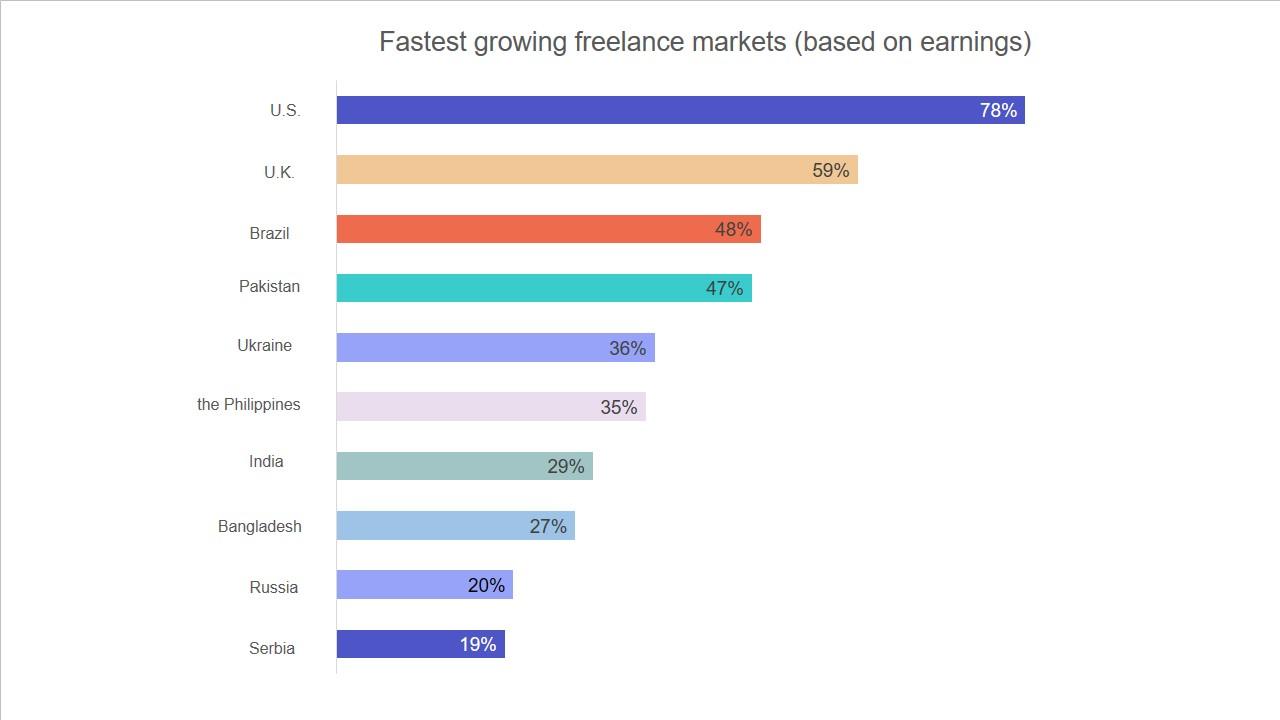
Freelance Market Trends 2024
As we approach 2024, the freelance landscape is rapidly evolving, reflecting shifts in both technology and workforce dynamics. With the rise of remote work and the gig economy’s expansion, more professionals are trading traditional employment for freelance opportunities. This growing trend is fueled by the flexibility and independence freelancing offers, allowing individuals to curate their careers around personal passions and lifestyles. In 2024, we can expect an uptick in niche markets, where specialized skills such as AI proficiency, digital marketing, and content creation are in high demand. Freelancers embracing these areas will likely see greater opportunities as businesses seek unique talents to differentiate themselves in their respective industries.
Furthermore, technology integration will continue to shape how freelancers manage their finances. Innovative accounting software specifically designed for freelancers is on the rise, promoting efficiency and simplifying tax preparation. Expect tools that automate invoicing, track expenses, and provide real-time financial insights to become standard practice. This will empower freelancers to focus more on their creative endeavors and less on the complexities of financial management. Key trends to leverage in 2024 include:
- Comprehensive tax platforms: Tools that seamlessly integrate with various income streams.
- Expense tracking apps: Solutions that easily categorize and manage expenses.
- Financial education resources: Increased access to webinars and online courses on freelance finance.
To Conclude
As we reach the conclusion of our journey through the intricate landscape of freelance finances, it’s clear that mastering taxes and accounting is not just a necessity, but a powerful tool for empowering your entrepreneurial spirit. By understanding the nuances of your financial obligations and implementing organized strategies, you can not only safeguard your hard-earned income but also pave the way for future growth.
Remember, the world of freelancing is as dynamic as the clients you serve, and keeping your finances in order is essential to navigating its challenges. Embrace the practices outlined in this guide, invest time in learning and adapting, and you’ll find that financial clarity will boost your confidence and creativity, allowing you to focus on what truly matters: delivering exceptional work and building lasting relationships.
mastering your finances is about more than just numbers; it’s about creating a sustainable life where you can thrive both personally and professionally. So, take a deep breath, arm yourself with knowledge, and let your freelance journey flourish without financial anxiety looming overhead. Here’s to your success—may your ledger be balanced, and your profits ever-growing!




